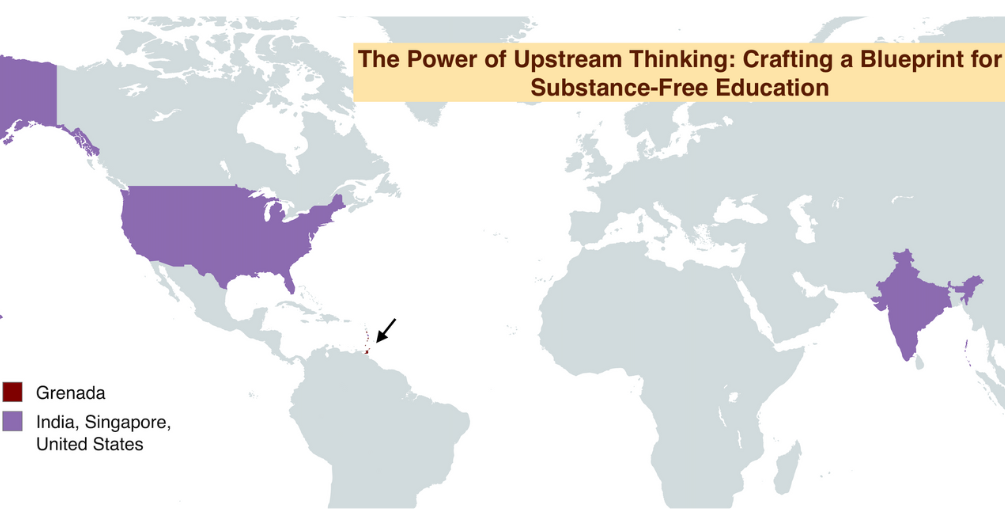The Power of Upstream Thinking: Crafting a Blueprint for Substance-Free Education

Shravani Gummaraju
2nd Year MPH Epidemiology Student
As I prepare to embark on this project in Grenada, I'm filled with a mix of excitement and anticipation. What I'm looking forward to most is the opportunity to engage directly with community members and stakeholders in crafting a blueprint for substance-free education. The chance to apply upstream thinking to real-world policy challenges is both thrilling and humbling.
My journey in global health began in India, where I first witnessed the profound impact of culturally-informed public health interventions. Those early experiences shaped my understanding of how health behaviors are deeply embedded in social contexts, preparing me for subsequent fieldwork in Texas. My time in Texas further expanded my perspective, demonstrating how community engagement strategies must be tailored to the unique needs and values of each population we serve.
My learning goals extend beyond mere policy analysis. I hope to gain insights into the nuanced ways cultural context shapes policy effectiveness and implementation. Understanding how to foster genuine community participation in decision-making processes is a skill I'm eager to develop as I continue to explore these diverse contexts across India, the US, and now Grenada.
Naturally, there are apprehensions. I'm concerned about ensuring my work is culturally sensitive and truly resonates with the local community. Navigating differing perspectives among stakeholders – from school administrators to law enforcement – feels exciting and necessary for creating sustainable change. Cultural humility will be essential in this process, acknowledging that effective interventions must be built on mutual respect and understanding.
Personally, I expect this experience will test and expand my adaptability. Working in an unfamiliar setting will likely reveal both strengths and areas for growth in my approach to public health challenges. I'm curious to discover how I'll navigate the balance between my formal training and the local knowledge and practices I'll encounter. The opportunity to compare my experiences across such diverse contexts as India, the United States, and Grenada offers a unique perspective that I'm eager to develop.
Culturally, I anticipate a learning curve in understanding Grenada's unique social dynamics and how they influence health behaviors and policy reception. I plan to approach this with humility and openness, recognizing that effective community engagement requires building trust and demonstrating respect for local perspectives. I'm particularly curious about how Grenada's approaches to public health challenges might differ from what I've observed in India and the US, and what these differences can teach me about contextually appropriate interventions.
My expectations for community engagement are high, hoping to foster relationships that go beyond superficial consultation. I foresee that deep community involvement not only enriching the project outcomes but also profoundly impacting my personal and academic growth by challenging my assumptions and expanding my understanding of effective public health practice.
In terms of interpersonal relationships, I expect to form meaningful connections with both fellow participants and community members. Navigating group dynamics will likely require empathy, active listening, and a willingness to step back and elevate other voices when appropriate. I plan to contribute by facilitating open dialogue and finding ways to bridge diverse perspectives, drawing on the comparative insights gained from my experiences across these three distinct cultural contexts.
